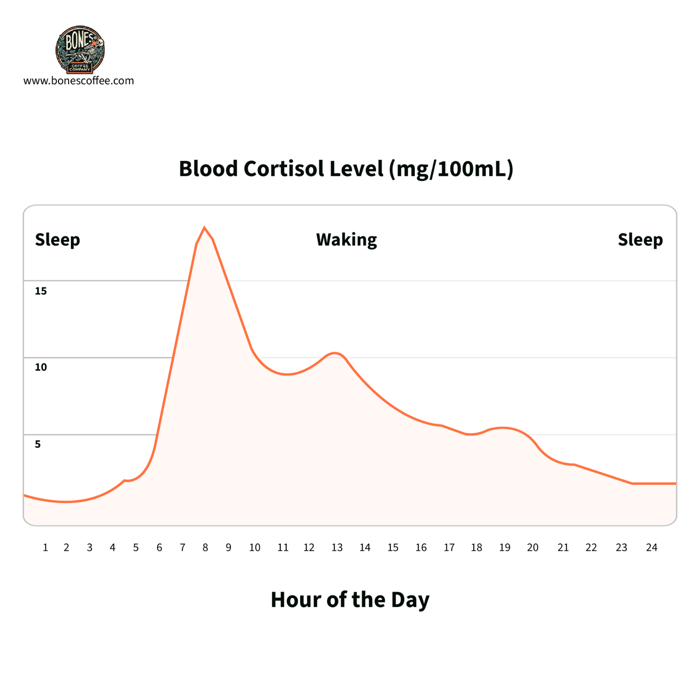It’s a question that pops up time and again among health-conscious coffee lovers: Is coffee bad for your kidneys?
While coffee is one of the most widely consumed beverages in the world, the answers you’ll find online can be surprisingly mixed. The good news is that coffee is safe for most people and may support kidney health in certain ways.
In this guide, we’ll break down how coffee affects the body, what science really says about its impact on kidney function, and how to enjoy your favorite brews while being mindful of personal health needs.
How Coffee Moves Through Your Body

When you drink coffee, caffeine is quickly absorbed into your blood, typically reaching peak levels within 45 minutes. That’s when most people notice the familiar boost in focus and alertness.
From there, it's primarily up to your liver to break caffeine down, a process known as metabolism. The liver converts caffeine into compounds that are then filtered by the kidneys and excreted through urine.
While rates vary by person, most of the caffeine is cleared from the system within 1.5 to 9.5 hours, depending on factors like genetics, age, and overall health.
For most healthy adults, moderate caffeine intake of up to 400 mg per day is generally considered safe by experts.
Your kidneys, the body’s dedicated filtration system, play a key role in this process. These bean-shaped organs maintain mineral balance, regulate blood pressure, and remove waste.
They even help support red blood cell production and bone health, keeping your body’s most essential systems working in rhythm.
What Science Really Says About Coffee and Kidney Health
Recent large-scale research offers a reassuring perspective: moderate coffee consumption may actually help lower the risk of developing kidney disease.
One large study involving over 14,000 participants found that higher coffee intake was associated with a reduced risk of developing Chronic Kidney Disease (CKD), with those drinking three or more cups per day experiencing up to a 16% risk reduction compared to non-drinkers.
A separate systematic review supported these findings, showing a noticeable decrease in CKD risk across regular coffee drinkers.
While it’s true that caffeine may lead to a temporary increase in blood pressure, current long-term studies do not show a direct connection between moderate coffee use and chronic hypertension or kidney-related complications.
The potential benefits appear to stem from the high levels of antioxidants found in both regular and decaf coffee—particularly chlorogenic acid—which help combat inflammation and oxidative stress in the body.
Common Concerns and Misconceptions

Let’s clear the air on some of the most persistent myths surrounding coffee and kidney health. While caffeine consumption is often misunderstood, the truth is typically far less alarming—and often more encouraging.
Myth: Coffee Causes Kidney Stones
Fact: Research suggests the opposite may be true. Coffee increases urine flow, which helps flush out stone-forming minerals. As a result, regular coffee drinkers may actually have a lower risk of developing kidney stones. This benefit is consistent with coffee's broader role in supporting metabolism and heart health.
Myth: Coffee is Severely Dehydrating and Bad for Your Kidneys
Fact: While coffee has a mild diuretic effect, the fluid content in your cup more than offsets it. For most people, coffee contributes to daily hydration. Even when consumed with milk, it’s not harmful to kidney function and doesn’t leave your kidneys high and dry.
Myth: Any Amount of Coffee Increases Your Risk of Kidney Disease
Fact: This claim is not supported by current research. Moderate caffeine consumption is generally considered safe for healthy individuals.
The bigger concern lies with excessive caffeine intake, particularly from concentrated supplements and energy drinks, which has been linked to rare cases of Acute Kidney Injury (AKI).
Coffee, when consumed moderately, does not raise the risk of chronic kidney disease or high blood pressure in healthy individuals.
Understanding these facts helps shift the conversation. Rather than fearing coffee, it's more helpful to be mindful of who may need to take extra care. For most people, drinking coffee in moderation is not only safe but potentially beneficial.
Who Should Be Cautious About Coffee Consumption?
While black coffee is safe for most people, some individuals should approach their caffeine intake more carefully, particularly when it comes to what they add to their cup.
If you have advanced Chronic Kidney Disease (CKD Stage 3–5), the concern often isn’t the coffee itself but the additives. Many coffee creamers and pre-made coffee drinks are high in potassium and phosphate, which your kidneys may struggle to filter.
Some manufacturers add chemical phosphates to their creamers and beverages, which can raise blood phosphate levels and complicate conditions in people with impaired kidney function.
If you're in any of the following categories, caution is a must:
- People with uncontrolled high blood pressure. Coffee may cause a short-term spike in blood pressure, which can be problematic for those already managing hypertension.
- Individuals with diabetes. Excess sugar in coffee shop drinks and flavored creamers can affect blood sugar balance and increase the burden on the kidneys.
- Those with known caffeine sensitivity or slow metabolism. The CYP1A2 gene affects how your liver breaks down caffeine. If you’re a slow metabolizer, you might feel jittery or overstimulated for hours after a single cup, and might benefit from lightening your brew with milk or switching to decaf.
Caffeine can also interact with certain medications, including thyroid drugs and diuretics, making it essential to talk to your doctor if you're on prescription treatments.
Important: If you have kidney disease, diabetes, or uncontrolled hypertension, it’s not just about how much coffee you drink; it’s about what’s in it. Pay close attention to add-ins like creamers and sweeteners. Often, it’s these extras that pose a greater risk to your kidney health. |
Why Coffee Might Actually Help Your Kidneys

We mentioned earlier that coffee isn’t harmful in moderation and might offer added health benefits for your kidneys. Let’s take a closer look at how.
Black coffee is rich in antioxidants that help combat oxidative stress and inflammation, both of which contribute to kidney damage. A meta-analysis even found a 22% lower risk of renal cancer among people with the highest coffee intake.
Coffee may also help prevent conditions that lead to kidney problems. Regular consumption is associated with a reduced risk of type 2 diabetes and cardiovascular disease, both significant risk factors for kidney disease.
Some studies even show that in people with existing CKD, moderate coffee intake may lower the risk of mortality.
To make the most of these benefits, stick to black coffee or add a splash of milk. As always, enjoy it in moderation.
How to Drink Coffee Without Stressing Your Kidneys
Ready to enjoy your coffee with confidence? Follow these simple habits to keep your kidneys happy.
- Stick to a Safe Dose: For most healthy adults, up to 400 mg of caffeine per day (about 3-4 standard cups of coffee) is considered safe.
- Go With Black Coffee: The healthiest way to drink coffee is black. If you need flavor, try brewing naturally flavored grounds to avoid the heavy sugars and syrups found in coffee shop drinks.
- Watch for Additives: Be cautious with creamers, especially non-dairy ones, as they can be high in phosphate additives, which are hard on compromised kidneys.
- Practice "Water-Pairing": For every cup of coffee you drink, have a glass of water. This simple habit ensures you stay perfectly hydrated throughout the day.
- Explore Delicious Decaf: You don't have to miss out on amazing flavors. A high-quality decaf provides antioxidant benefits and a rich taste without the caffeine.
Consider trying different decaf coffee and flavored options to find a kidney-friendly favorite while monitoring how you feel.
Pro Tip: The simplest kidney-friendly habit is 'water-pairing.' For every cup of coffee, drink a glass of water. This easy trick ensures you maintain perfect hydration throughout the day. |
Should You Keep Drinking Coffee?
For the average healthy person, coffee consumption is not bad for the kidneys. In moderation, it's a safe, antioxidant-rich beverage that may offer protective benefits against kidney disease.
The risks are primarily for those with pre-existing severe kidney conditions, uncontrolled blood pressure, or those who consume excessive amounts of coffee.
The best approach is to enjoy your coffee mindfully, choose kidney-friendly preparations, and always consult your doctor about personal health concerns. Explore the world of delicious and safe options with the decaf coffee collection.







